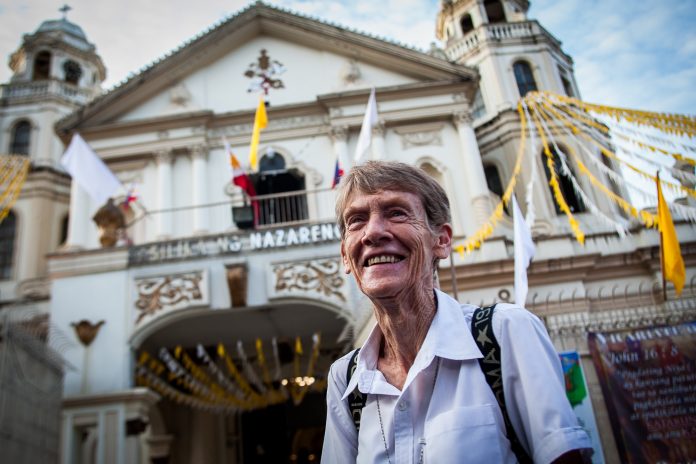The readings for this last Sunday of Advent are full of “messianic expectation”. They exude hope and trust which has endured through occupation and exile and grown stronger in persecution.
It is a hope centered on the key promise of God given to David, that David’s house and his kingdom would be established forever (2 Sam.7:16). After the Exile, the people longed for another David, the shepherd boy anointed by God who became a great warrior defeated enemies in battle and united the 12 tribes around Jerusalem.
With the defeat of the Davidic dynasty, the people asked where was God’s promise. We see the struggle of the community with this dilemma in the Royal Psalms.
Psalm 89 begins praising God’s steadfast love and faithfulness to all generations but this trust in God is being tested as the psalmist laments “where is thy steadfast love of old, which by thy faithfulness thou did swear to David” (v49).
In the intertestamental period, prophecies and hopes for a restored Davidic kingdom heightened and led to the imminent expectation of a future anointed king who would be the “Messiah”, in the line of David.
It is within this climate that Gabriel appears, first to Zechariah and then to Mary. Gabriel’s only other appearance in the Bible before this was to Daniel, where he tells Daniel of the destruction of Israel by the Medes and Persia (Dan. 8:16).
Now Gabriel has appeared again, first to Zechariah to announce the “impossible” pregnancy of Elizabeth, and then to Mary with an invitation that she be the woman through whom the Davidic dynasty would be re-established.
Mary, an ordinary Jewish woman living in the insignificant town of Nazareth, had been chosen as the person through whom God was to become a human person and dwell among us. She would have been steeped in the messianic hope of her time, for an anointed person who would liberate them from Roman occupation and restore the community.
And while Zechariah asked for a sign, Mary believes that with God nothing is impossible and replies to Gabriel: “I am the handmaid of the Lord; let it be done to me according to your word”. Luke puts this response within the context of the restoration of the Davidic dynasty.
Mary could make this response, believing in the steadfast love of God despite clarity in what this would mean. We know it led her to heartache as she stood with her son who showed a different “kingship”, based on concern for the poor, oppressed, and marginalized. A kingship that would lead to the cross and ultimately resurrection.
Romans 16:26-38, are Paul’s final words to the churches there before he moves on to Spain. He calls on them to look deeply into the mystery of the prophetic writings where they will discover that Jesus’ reign is not just for the people of Israel but for “all the Nations”. Through this reflection he calls them to obedience in faith, to live as Jesus did.
In our troubled times, the Philippines has become a country where the rivalry between China and the USA is being played out, where human rights are not respected, and poverty is increasing.
Where Israel continues to bomb the people of Gaza and attack Palestinians in the West Bank. Where Russia and Ukraine continue at war. Where the military in Myanmar continues to massacre the indigenous. Where people in Africa are starving and where the world is turning its back on refugees forced to leave their country because of war or famine.
What would Gabriel be calling us to now? How do we both say we are the servants of the Lord and act accordingly? Do we see hope as a verb and live “Emmanuel”, God with us?
This Sunday is a call to renewed hope in action because God’s love is everlasting.
Let me end this meditation with a Palestinian carol: “Hatred will vanish, the earth will bloom, war will be buried, and love will be born.”
Gospel reflection of Sister Patricia Fox, NDS for the Fourth Sunday of Advent 2 Sm 7:1-5, 8b-12, 14a, 16, Ps 89:2-3, 4-5, 27, 29, Rom 16:25-27, Lk 1:26-38
Balik-Tanaw is a group blog of the Promotion of Church People’s Response (PCPR). The Lectionary Gospel reflection is an invitation for meditation, contemplation, and action.









